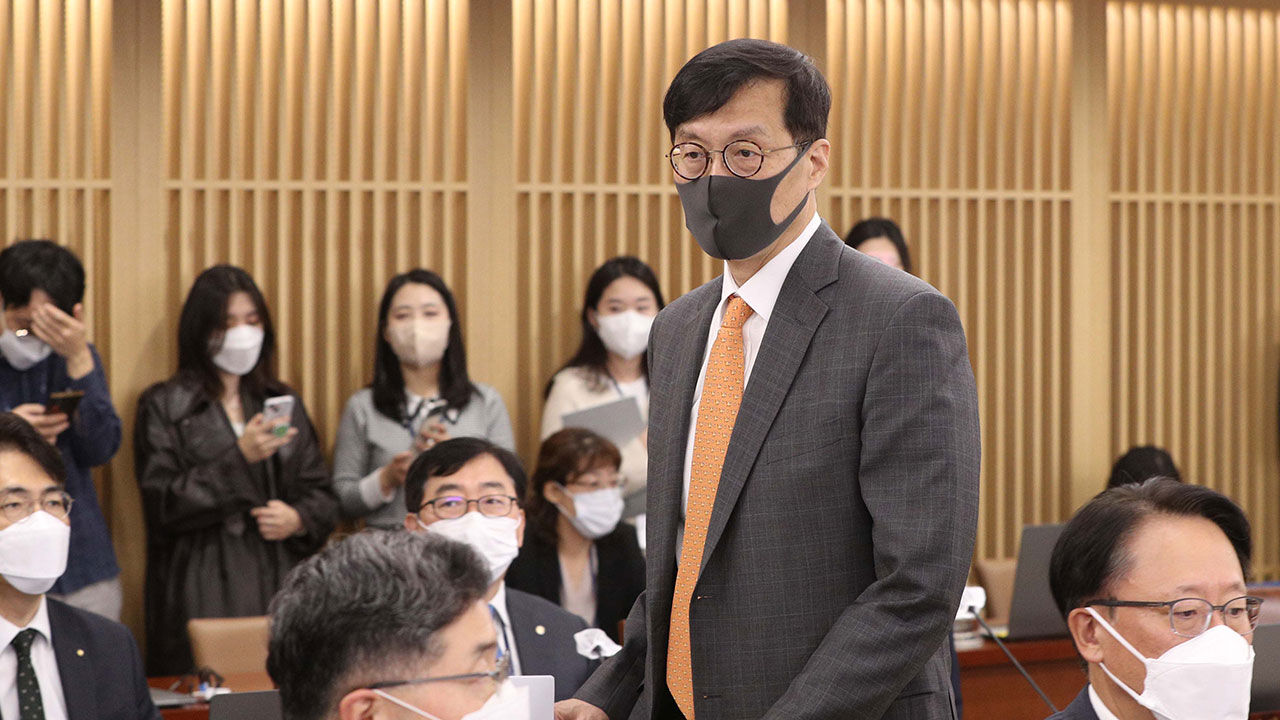The Monetary Policy Committee of the Bank of Korea (hereinafter referred to as the Monetary Policy Committee) raised the key interest rate by 0.50 percentage points today (12th).
It is the first time in history that the base rate has been raised five times in a row, and it is the second 'big step' (0.50 percentage point increase at once) after last July.
The central bank's interest rate hike is expected to continue until next year.
This is because it is difficult to immediately relieve the inflationary pressure caused by the rise in international oil prices, and if the US widens the policy rate gap with Korea through successive 'giant steps' (0.75 percentage points increase at once), the BOK will have no choice but to raise the base rate. .
Economists and financial experts predicted that the base interest rate would be 3.25 to 3.50 percent by the end of this year, and predicted that interest rate hikes would continue until the first half of next year.
Experts expected the BOK Monetary Policy Committee to raise the key interest rate at the Monetary Policy Direction Meeting in November.
This is because inflation (inflation) pressure, the highest level since the financial crisis, is still there.
The consumer price index (108.93) in September rose 5.6% from the same month last year.
The increase rate fell for the second month in a row following August (5.7%), but it does not drop significantly from the mid-5% range.
The widening gap in policy interest rates is also a burden on the BOK, given the inverted interest rates between the US and Korea.
The US base rate is 3.00-3.25%, which is still 0.25 percentage points higher than the Korean base rate (3.00%).
The US Federal Reserve (Fed) predicted a 4.4% interest rate level by the end of this year in a dot chart showing the policy rate forecasts of members of the Federal Open Market Committee (FOMC) last month.
Accordingly, the possibility that the Fed will carry out a 'giant step' and a 'big step' respectively at the next two FOMCs (November and December) has increased.
The BOK should raise the base rate in November to minimize risks such as outflow of foreign investment, a weak won, and an increase in import prices due to exchange rate fluctuations.
The BOK's November base rate hike is divided into 'big step' and 'baby step' (0.25% point increase).
An Ye-ha, a researcher at Kiwoom Securities, said, "The Fed will take the fourth giant step by November, and domestic prices are likely to remain high. I predicted that.
Cho Young-moo, a research fellow at LG Business Research Institute, said, "Inflation has passed its peak anyway, and concerns about economic and export slowdown at home and abroad may grow in November, so it will be burdensome to raise it by 0.50 percentage points in a row." I did.
Experts predicted that the base rate would rise to 3.50-3.75% early next year.
As the Fed has predicted that it will raise interest rates by next year, it is highly likely that Korea will continue to raise rates.
“We will seek to raise interest rates until the first half of next year,” said Cho, a research fellow at the BOK.
Jang Min, a senior research fellow at the Korea Institute of Finance, also said, "The BOK cannot set interest rates independently of the Fed." I expected it.
Lee Chang-yong, governor of the Bank of Korea, also said at a parliamentary audit by the National Assembly's Planning and Finance Committee on the 7th, "The basic stance is to maintain the base rate hike in a situation where the consumer price inflation rate exceeds 5%." will be maintained.”
(Photo = Yonhap News)

